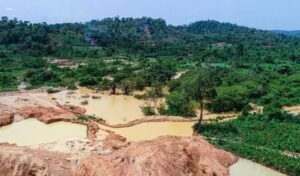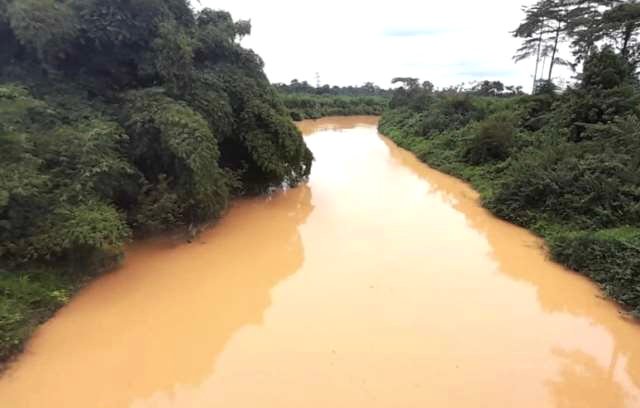The Managing Director of Ghana Water Limited (GWL), Adam Mutawakilu, has raised alarm over the worsening impact of illegal mining (galamsey) on the country’s water treatment infrastructure, warning that the situation could trigger widespread economic disruptions.
Speaking at a press briefing in Accra on Monday, October 20, Mutawakilu described the rising siltation of water bodies—caused by galamsey—as not just an operational issue for GWL, but a looming national economic crisis.
“This challenge matters beyond GWL,” he cautioned. “If siltation continues unchecked, the cost will cascade across the economy.”
He explained that as water sources become increasingly polluted and clogged with silt, treatment costs continue to rise, with ripple effects expected across multiple sectors.

“These costs will not only strain the utility provider but also affect industries and consumers,” Mutawakilu noted. “Beverage and bottling firms will face production delays, higher input costs, and possible stock shortages. Food processing and FMCG companies will encounter disruptions in production and quality challenges.”
He further warned that the tourism and hospitality industries would also feel the impact. “Hotels, restaurants, and event centers will grapple with unreliable water supply and costly backups,” he said, adding that schools and hospitals could face water rationing, threatening hygiene and essential services.
“The manufacturing sector and commercial hubs will not be spared either,” Mutawakilu continued. “Manufacturers will face interruptions in processing, while real estate and commercial facilities will incur rising expenses for alternative water and energy sources.”
He concluded with a stark reminder of the broader consequences: “Productivity declines and prices rise when a basic input like treated water becomes more expensive and less reliable.”
Mutawakilu’s warning comes amid growing public concern over the environmental and economic damage caused by galamsey, which has already led to the contamination of major river bodies across Ghana.
Ghana Water Limited is urging stronger law enforcement, policy action, and public cooperation to curb illegal mining before it undermines the nation’s water security and economic stability.
Source:Africa Publicity








